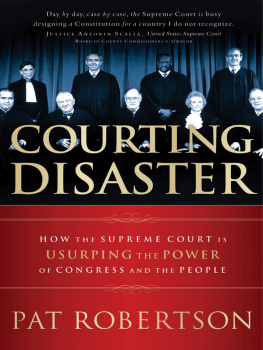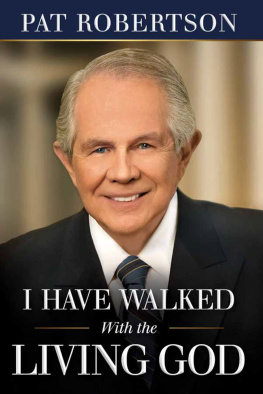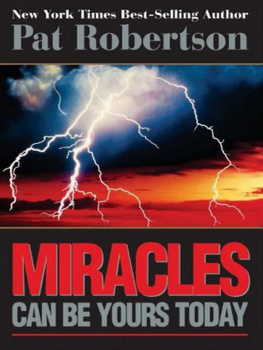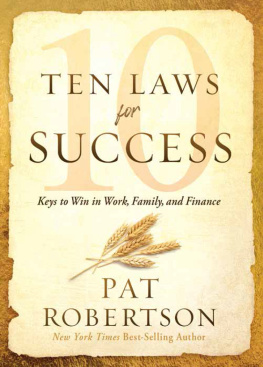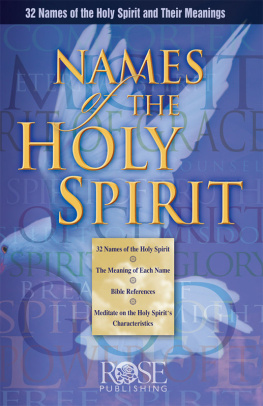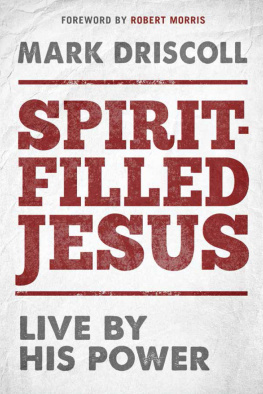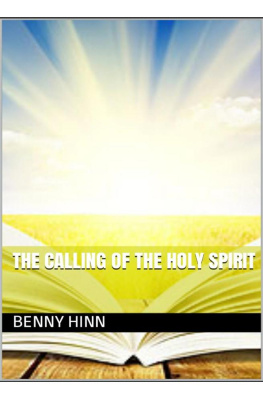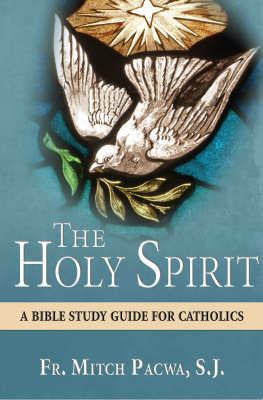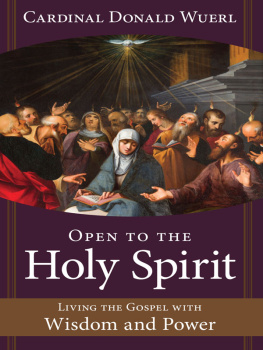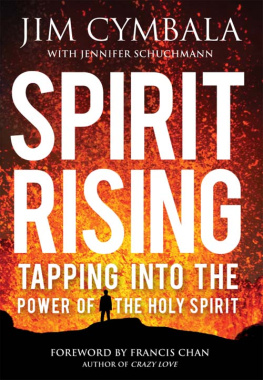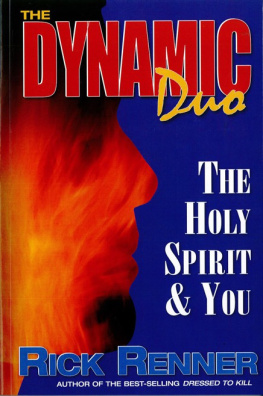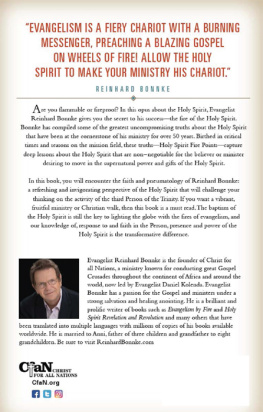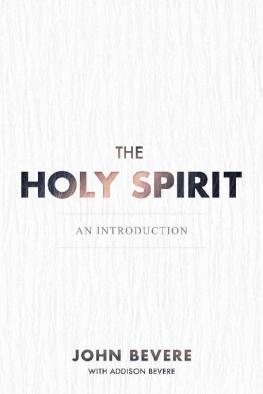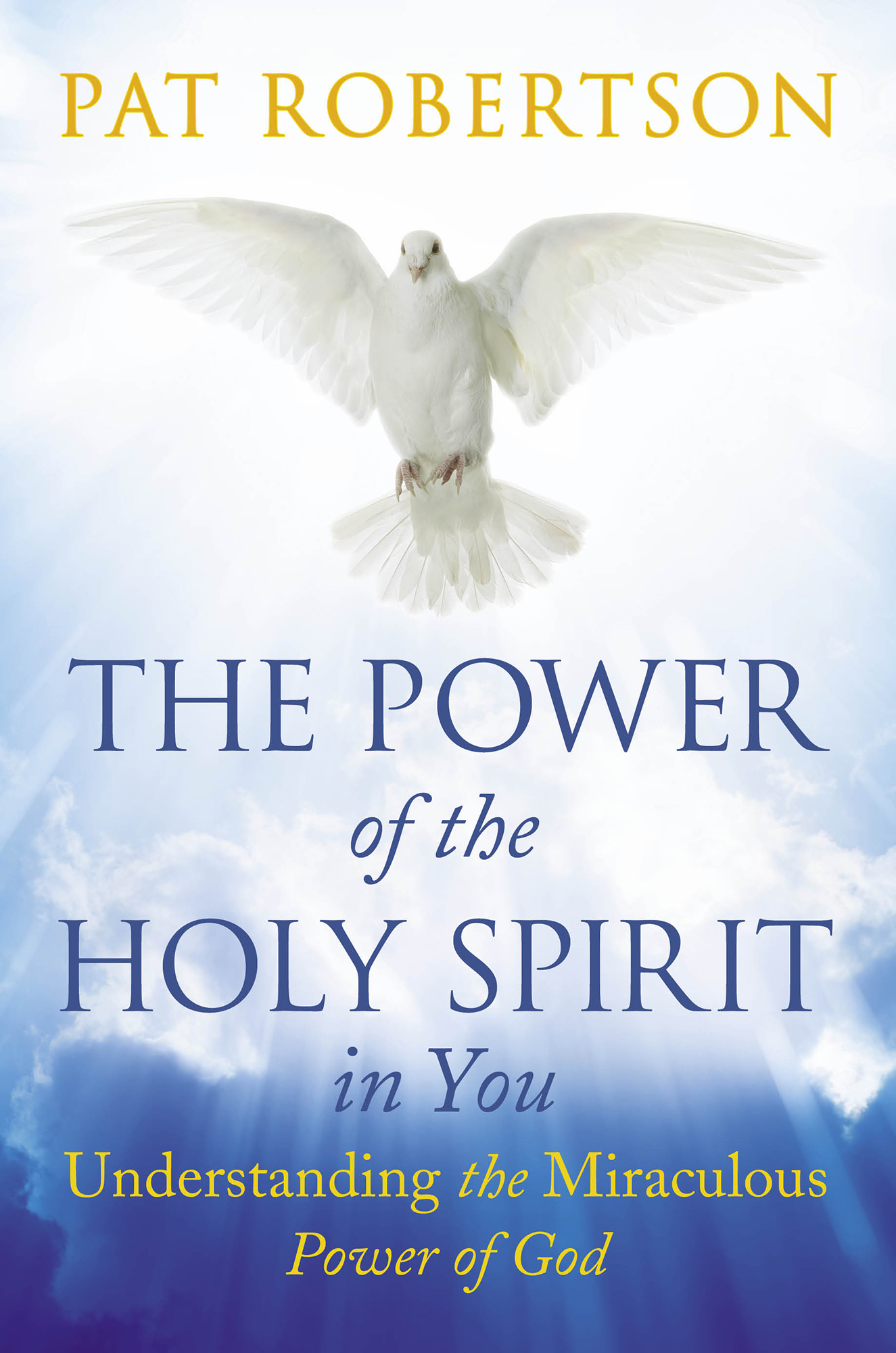Contents
Guide
Pat Robertson
The Power of the Holy Spirit in You
Understading the Miraculous Power of God
Copyright 2022 by Pat Robertson
All rights reserved. No part of this publication may be reproduced or transmitted in any form or by any means electronic or mechanical, including photocopy, recording, or any information storage and retrieval system now known or to be invented, without permission in writing from the publisher, except by a reviewer who wishes to quote brief passages in connection with a review written for inclusion in a magazine, newspaper, website, or broadcast.
Scripture quotations marked AMP are taken from the Amplified Bible. Copyright 1954, 1958, 1962, 1964, 1965, 1987 by The Lockman Foundation. Used by permission. www.lockman.org.
Scripture quotations marked AMPC are taken from the Amplified Bible. Copyright 1954, 1958, 1962, 1964, 1965, 1987 by The Lockman Foundation. Used by permission. www.lockman.org.
Scripture quotations marked KJV are taken from the King James Version, public domain.
Scripture quotations marked MEV are taken from the Modern English Version. Copyright 2014 by Military Bible Association. Used by permission. All rights reserved.
Scripture quotations marked NASB are taken from the (NASB) New American Standard Bible. Copyright 1960, 1971, 1977, 1995, and 2020 by The Lockman Foundation. Used by permission. All rights reserved. www.lockman.org.
Scriptures marked NET are taken from the Bible http://netbible.com. Copyright 1996, 2019. Used with permission from Biblical Studies Press, L.L.C. All rights reserved.
Scripture quotations marked NIV are taken from the Holy Bible, New International Version, NIV. Copyright 1973, 1978, 1984, 2011 by Biblica, Inc. Used by permission of Zondervan. All rights reserved worldwide. www.zondervan.com. The NIV and New International Version are trademarks registered in the United States Patent and Trademark Office by Biblica, Inc.
Scripture quotations marked NKJV are taken from the New King James Version. Copyright 1982 by Thomas Nelson. Used by permission. All rights reserved.
Scriptures marked NLT are taken from the Holy Bible, New Living Translation. Copyright 1996, 2004, 2015 by Tyndale House Foundation. Used by permission of Tyndale House Ministries, Carol Stream, Illinois 60188. All rights reserved.
Scriptures marked WEB are taken from The Word English Bible, public domain.
Salem Books is a trademark of Salem Communications Holding Corporation.
Regnery is a registered trademark and its colophon is a trademark of Salem Communications Holding Corporation.
ISBN: 978-1-68451-251-5
eISBN: 978-1-68451-256-0
Library of Congress Control Number: 2021946352
Published in the United States by Salem Books, An Imprint of Regnery Publishing
A Division of Salem Media Group, Washington, D.C., www.SalemBooks.com
Books are available in quantity for promotional or premium use. For information on discounts and terms, please visit our website: www.SalemBooks.com.
Cover design by Jason Sunde
BEGINNING
CHAPTER 1 O NE G OD, OR T HREE
I n the Book of Genesis, the first chapter of the Bible, we read these words: In the beginning God (prepared, formed, fashioned, and) created the heavens and the earth. The earth was without form and an empty waste, and darkness was upon the face of the very great deep. The Spirit of God was moving (hovering, brooding) over the face of the waters (Genesis 1:12, AMPC). So, in the beginning of time, before the earth had been formed, not only was Elohim (God) present, but also someone called in Hebrew Ruach Elohim (the Spirit of God). Then, Scripture tells us that the Spirit of God was brooding over the waters. The image here is of a mother hen covering her babies. It is safe to say that the Spirit of God was present at the very creation of the world, and that the Spirit of God is distinct from God the Father. Otherwise, why would it be necessary to speak of God as one being and the Spirit of God as another being?
But then something else is revealed. And God said, Let there be light, and there was light (Genesis 1:3). So a third factor is introduced to us: the Word of God. In the first chapter of the first book of the Bible, we see God, the Spirit of God, and the Word of God. We will learn later that Jesus Christ is known as the Word of God. There are three distinct beings: God, the Spirit of God, and the Word of God.
The Gospel of John gives us further understanding about the second person of the Godhead, the Word. Johns gospel says, In the beginning was the Word, and the Word was with God, and the Word was God. He was with God in the beginning. Through him all things were made; without him nothing was made that has been made (John 1:13 NIV). The Greek preposition dia is used at this point and can be translated as by or through. However, three of the best translations translate it as through, and therefore, for the purposes of this manuscript, I will be using the translation of dia as through. The Creative Mind (the Father) expressed Himself through the Word (the Son), but the active power to effectuate the Fathers command comes by the Spirit of God.
What do we learn from this biblical beginning? Father God appears as the creative mind, and He expresses Himself with His word. Would that not be adequate to achieve what is necessary? Apparently not. I dont want to read too much into the early narrative, but it does seem that the effective power to activate Gods will and spoken word throughout His creation comes through the Spirit of God.
This book is about the Holy Spirit, and throughout the Bible, the Holy Spirit is the power which activates the will of God and the Word of God throughout His creation, and certainly to those of us made in His image.
We can fast-forward now to the beginning of the ministry of Jesus Christ when, as a young man of thirty, He submitted Himself to the ritual of baptism at the hand of a fiery preacher known as John the Baptist. At that moment, Scripture tells us that a dove (the symbol of the Holy Spirit) descended from Heaven and sat upon Jesus, and a voice from Heaventhe voice of God the Fathersaid, This is my beloved Son, in whom I am well pleased (Matthew 3:17 NKJV). Here again is the Trinity of GodFather, Son, and Holy Spiritthe Father, the creative mind of the Trinity; the Son, the expression of God or the Word of God; and the Holy Spirit, the activating power of God throughout His creation.
We have learned that God the Father is God, God the Son is God, and God the Holy Spirit is also God. And yet together, they are one.
People have laughed at this concept, have been confused by it, and have brought forth heresy to explain it. The Islamic faith, in fact, refers to Christians as polytheists, which to its adherents is a gross error. They say, We serve one god, who is Allah. I wonder who Allah is. The flags of Algeria, Libya, Turkey, and Pakistan, for example, have the crescent moon on them. For a time, I considered the possibility that Hubal, the Moon God of Mecca, was indeed the Allah that is worshipped by the Islamic people. However, the weight of scholarship swings in another direction. Was Allah a derivation of an Arabic term much like the Hebrew El, or did it partake of the Phoenician name for lord, which was Baal? The best scholarship I have been able to find indicates that Allah is in truth a derivation of Baal. Whatever the origin of Allah, I want to say emphatically that Christians and Jews do not worship Allah, but the Covenant God of the Hebrews who is identified by the tetragrammaton


